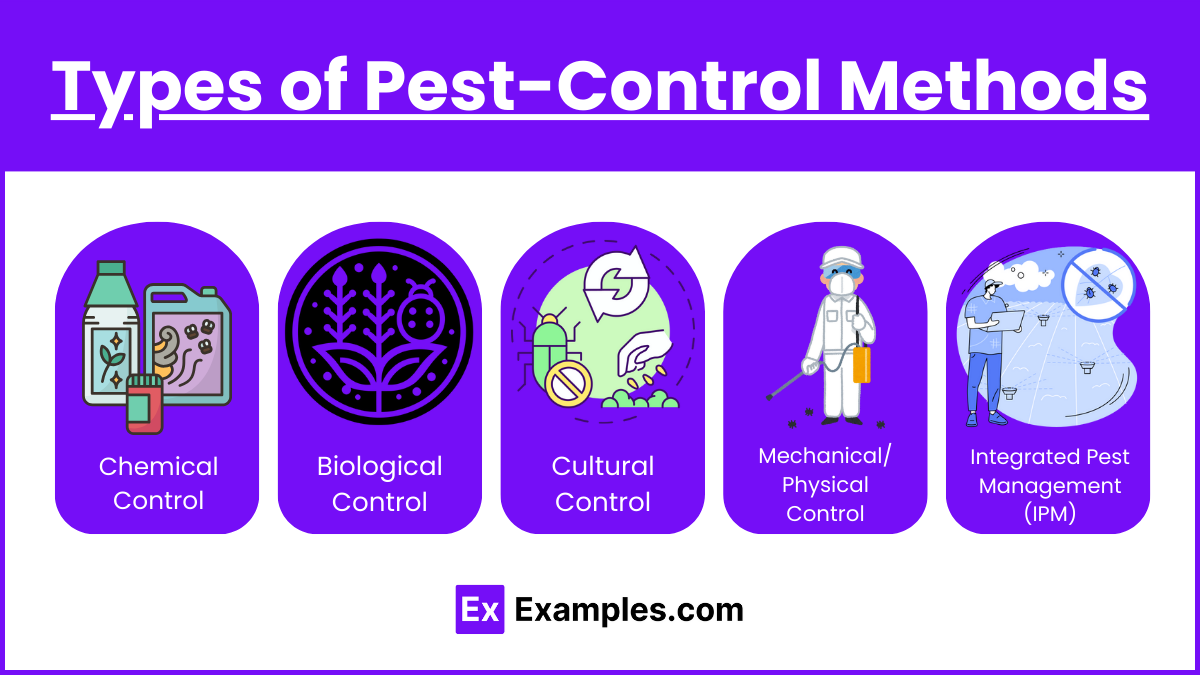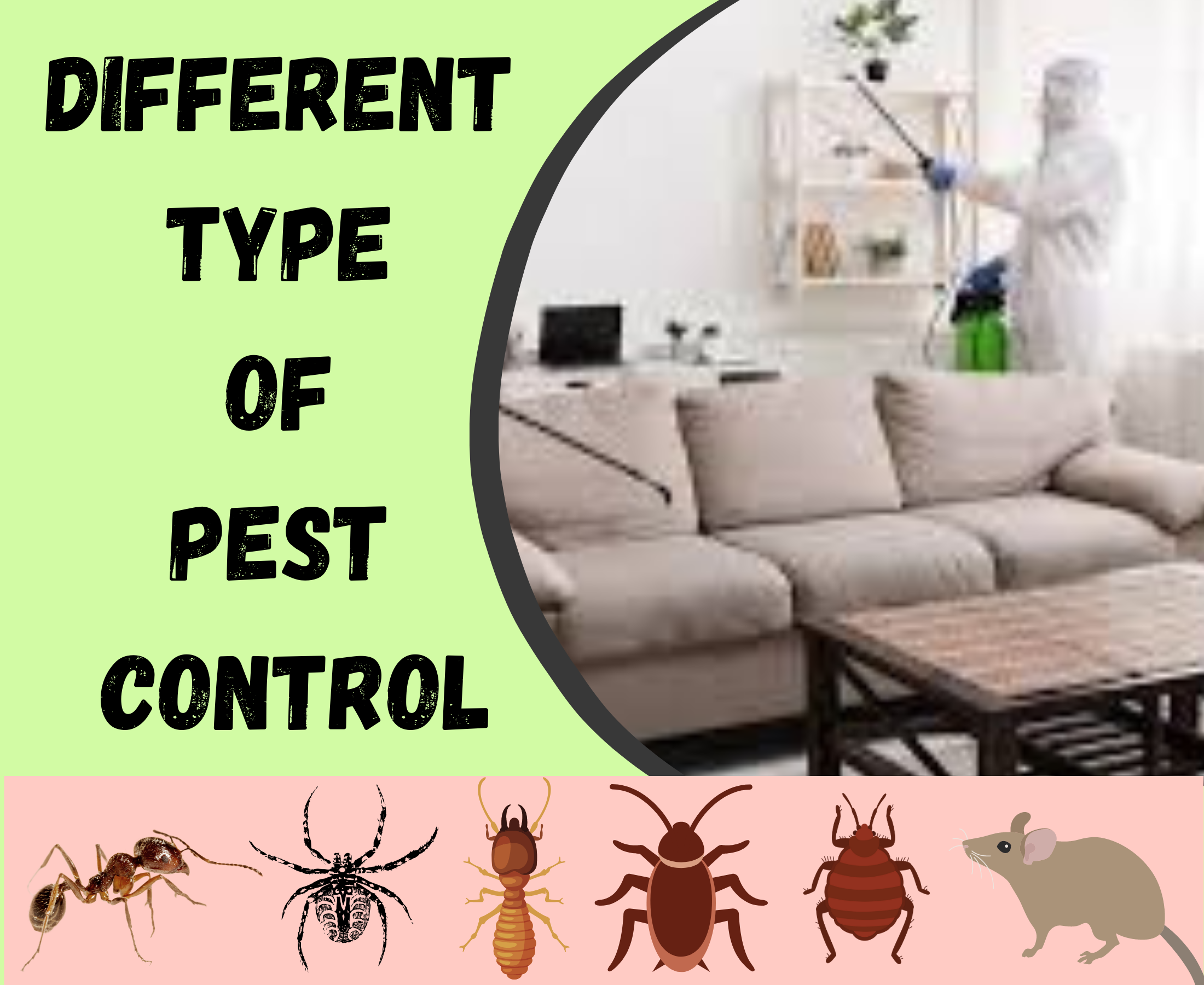The Buzz on Pest Control
Table of ContentsThe Single Strategy To Use For Pest ControlWhat Does Pest Control Do?Pest Control for BeginnersThe Of Pest Control9 Easy Facts About Pest Control Shown
Limitations of Chemical Management Be able to analyze pest problems, determine if administration is essential, and make ideal recommendations utilizing IPM methods. Be familiar with different approaches of parasite management - their benefits and constraints.This chapter reviews (IPM), a technique that makes use of understanding about bugs and their, practices, nonchemical techniques, and chemicals to take care of insect issues. Additional details about IPM for details plants is consisted of in chapters that concentrate on those plants. Nonchemical pest control actions are stressed in chapter 17, "Organic Gardening." Handling birds and mammals is covered in chapter 20, "Wildlife." Taking care of in the backyard and yard is covered in phase 6, "Weeds." Parasites in a yard or landscape may include pests and termites, weeds,, creatures, and birds.
Pests and weeds, however, play a role in the. After growing a yard or establishing a yard, the all-natural process of plant sequence begins to improve and nonnative plants.
What we call "parasites" are part of a natural system at job. Only human beings take into consideration particular species insects when they happen where they are not desired.
The Definitive Guide for Pest Control
Parasites prone to a pesticide were quickly eliminated, leaving resistant ones to breed and increase. It ended up being clear that chemicals alone would certainly not solve all insect issues.
An IPM plan permits some level of pests in the environment. Parasites are much less most likely to survive a program that uses numerous various techniques of reducing their populations. Integrated bug administration was initial suggested by entomologists since insects were the very first team of bugs to prove challenging to handle with chemicals alone.
bug and host properly. and consider economic or aesthetic injury. A limit is the point at which activity need to be taken. a treatment method utilizing mechanical, cultural, organic, or chemical controls, or a combination of these strategies. success of therapies. IPM has actually extended beyond pests to management of all pest populations: weeds, illness organisms, and animals.
What Does Pest Control Do?
Administration instead than eradication of insects is the objective. An IPM plan starts with a mindful assessment of each bug infestation. Only then can one decide regarding the suitable methods required to subdue insect tasks. The life process of the pest, possible damages, all-natural opponents, and impacts of weather condition, to name a few elements, are considered prior to a control strategy is executed - Pest Control.
Clover expanding in a lawn may be considered as an undesirable weed, yet as a legume it is synthesizing nitrogen for the dirt and the blossoms are offering nectar to honey bees and various other. Tolerance for some weeds might belong to an IPM strategy. may be eating the leaves of a plant, however when they are identified as the larvae of Eastern tiger swallowtail butterflies, their damage might be tolerated so we can delight in the lovely butterfly.

The second crucial tool in bug administration is early treatment. Being present and watchful in the garden makes sure very early detection. Reacting to troubles rapidly, before they have time to multiply, calls for a much less remarkable intervention. The 3rd most crucial device is recordkeeping; tracking what occurs in the yard enables More hints a garden enthusiast to recognize patterns and make informed choices.
9 Simple Techniques For Pest Control
Many secure, sensible, nonchemical methods of plant defense and pest administration might reduce or eliminate the need to spray. Various other methods are most advantageous when made use of with chemicals. To execute monitoring methods appropriately and to minimize losses, gardeners should understand the kinds of bugs that strike plants and understand pest biology.

Conducting a dirt test and applying only the advised amount of fertilizer and lime takes full advantage of the advantage to the plant while decreasing issues connected to too much usage of fertilizer - Pest Control. Covering the soil with several inches of mulch safeguards the plant in numerous ways: minimizing dirt water loss to dissipation, lessening weed competitors, giving nutrients, and creating an ideal setting for earthworms and microorganisms that maintain the dirt loose for origins and break down natural material to release nutrients
If mulch touches the trunk, it can produce a means for voles, microorganisms, and fungis to assault the plant. Do not use manure or garden compost that continue reading this has actually not extensively decomposed as a leading clothing since it can encourage unwanted parasites. Study suggests that tilling the dirt is destructive to dirt structure.
The 3-Minute Rule for Pest Control
If tilling is regarded necessary, consider doing it in the autumn when the life cycles of numerous pests brings them near the surface. At the surface area, bugs become subjected to the weather condition as well as birds and various other all-natural enemies.